Soundproofer Bude Cornwall (EX23): If you are anxious about the level of noise that is infiltrating your Bude property, be it in a home office, bedroom, living room or studio, you ought to consider installing some soundproofing. In some instances you could be investigating soundproofing so you don't disturb others from a kid's room, music room or home cinema. Either way, soundproofing is important for peace of mind and sanity.
First we need to get our heads around exactly how is transmitted and travels before we can identify ways to reduce any loud noise getting into or out of your property.
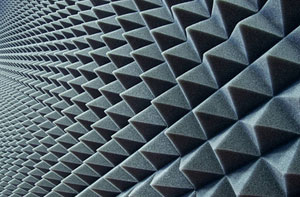
Basically, sound moves in two ways throughout your room:
1. Around and within a solid object by vibration and reflection.
2. In open spaces by movement of air.
Despite the fact that sound can also travel through water, unless you're wanting to isolate noises from an aquarium or pool, we will only be interested in how to reduce sound transmission in the rooms of a property.
SOUND TRAVELLING THROUGH THE AIR
If you look around the room or area to be soundproofed and notice ill fitted windows, gaps around doors, heating ducts and even light fittings and electrical sockets, these are all causes of sound transmission. What we hear as sound is basically air molucules being vibrated and reaching our ear drums. All sounds travel through the air in this same manner; it does not matter if it's machinery, aircraft, busy traffic, children playing or music that produces the sound.
You must therefore visualise a room as a boat and carefully inspect it for leaks before sailing off into the sunset.
SOUND THROUGH OBJECTS AND STRUCTURES
Sound waves can additionally be transferred to, reflected by or absorbed by solid materials and structures. Sound can be transported around a property from its source via the vibration of floors, ceilings and walls. Even a solid concrete room, such as a basement, can produce a resonance path which transports any sound waves, and sometimes amplify them, to other rooms in a building.
How should we stop these vibrations and sounds from having an adverse effect on other folks? Soundproofing is the answer.
SIMPLE STEPS IN SOUNDPROOFING
Think about covering bare floors, which reflect and resonate sound, with a carpet or rug. Not only can such a simple and straightforward solution help reduce your noise pollution problem, but it can also spruce up the room. Wall coverings or window drapes can also be employed to improve soundproofing and are easy to fit and maintain.
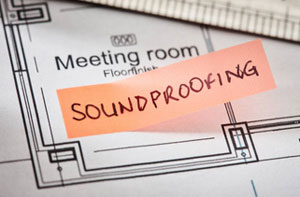
Finding and sealing any gaps or holes in your rooms, think electrical sockets, door frames, light fittings and windows, is also a simple job for a capable DIY'er. There are some special acoustic sealants available on the market that suppress the sound waves, and don't transmit them to the surrounding materials. There may be a considerable difference in price when compared to a standard sealant, but the soundproofing abilities are a lot better and can make a massive difference to a room's level of soundproofing.
If the room you are working on is a blank canvas and you're doing the soundproofing while you decorate or renovate, think about putting up a layer of soundboard or plasterboard, (also known as drywall, sheet rock or gyproc). This is an economic and efficient soundproofing material because of its dense nature. If you are putting in a study, games room or home cinema then plasterboard will help to minimise sound transmission from and to that room, and can be decorated easily after installation. If you do decide to use plasterboard to help with your soundproofing exploits it is a good idea to use a professional fitter in Bude, to get the maximum possible benefit from its installation.
The last solution for DIY enthusiasts is to look at the doors in your home in Bude. If you have hollow doors in your rooms you'll discover that they can resonate and vibrate with any sound that hits them. Exchanging hollow core doors for solid core will boost the soundproofing qualities of a room with only a minimal extra cost.
PROFESSIONAL SOUNDPROOFING BUDE
Some areas, for example those beside busy traffic routes or on aircraft flight paths, have naturally more sound problems and will need other ways to tackle the situation. This is when using the services of a professional soundproofing contractor will bring the most effective results.
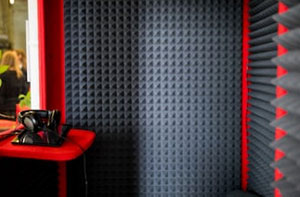
Be ready to answer the four following questions during an initial survey of your soundproofing needs:
- Is it internal noise or external sounds that you need to target? i.e. To cut out road noise, trains or next door neighbours, or is it from internally generated sounds from a music room or family room for instance.
- How big is the room that needs soundproofing?
- Where is the main source of sound emanating from? i.e. Overhead, through the doors, walls, floors, windows or ceiling, or a combination.
- What is the space you want to soundproof constructed from? (i.e. a stud partition wall, a brick wall or a lined concrete wall).
Your answers to such questions will allow you to get estimates for the different solutions available to suit your circumstances. There'll be distinct remedies for each of the key areas the room that you want to soundproof.
PROFESSIONAL SOUNDPROOFING OF FLOORS, CEILINGS and WALLS
There are two areas that need to be dealt with to successfully soundproof any room:
- Minimise sound amplifying and resonating.
- Improve the absorption of sound.
An on-site survey will be needed to pinpoint the aspects to be improved.
A professional will look at the different methods for adding mass and density to the trouble spots. The addition of acoustic foams and rubbers of different density and mass will help to absorb noises and reduce transmission and reflection sources.
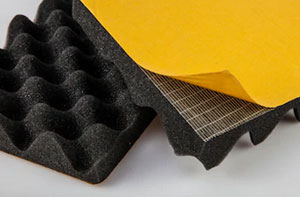
Any noticeable voids in the area might need some form of deadening material to be inserted between them to lower noise resonation. If you envision such spaces as similar to a drum then you will see that by leaving floor or ceiling joist spaces and wall cavities open, you are creating a sound amplifying area.
It's better to use mixed layers of different densities to absorb unwelcome noises than a solitary layer fabricated from one sort of soundproofing material. This is because the different material densities react in different ways with various frequencies and will deliver a better overall resolution to your soundproofing exploits.
All soundproofing firms in Bude will be needing to follow the requirements for domestic properties as set down in Part E of the Building Regulations. Such requirements must be observed so as to protect yourself and neighbours from being negatively impacted by sound pollution.
Trade organisations in the soundproofing sector that offer qualifications, advice and training are the Association of Noise Consultants and the Institute of Acoustics. Only those Bude businesses that have been appraised and approved by these associations for reliability, quality and professionalism are allowed to display the logo.
Where is it Available?
Soundproofing services are available in Bude and also in nearby places like: Bush, Bridgerule, Helebridge, Lower Upton, Kings Hill, Stratton, Launcells, Pyworthy, Poughill, Kilkhampton, Lynstone, Chilsworthy, Marhamchurch, Stibb, Flexbury, Holsworthy, Widemouth Bay, Penzance, and in these postcodes EX23 8NZ, EX23 8EU, EX23 8BQ, EX23 0LR, EX23 8EJ, EX23 8LN, EX23 8GX, EX23 0LW, EX23 0LU, and EX23 8LG. Local Bude soundproofing specialists will likely have the telephone dialling code 01288 and the postcode EX23. Checking this can ensure that you are accessing locally based providers of soundproofing. Bude homeowners are able to benefit from these and various other soundproofing related services. Click the "Quote" banner to make enquiries and obtain soundproofing quotations.
Acoustic Door Seals
Acoustic door seals are an essential aspect of any soundproofing system within a structure or building. Their purpose is to diminish the amount of noise that travels through doorways, thereby enhancing the sound insulation of the space as a whole.
Acoustic door seals are created using a combination of materials, including weatherstripping, foam and rubber, all of which are selected for their unique ability to absorb and stop sound waves. By preventing sound from passing through gaps and cracks in door frames, these seals improve the overall sound insulation of an area. To further boost their sound-blocking capabilities, certain acoustic door seals include sound-deadening materials, like mass loaded vinyl, in their design. This ensures that the seals provide the maximum possible protection against unwelcome noise.
The success of an acoustic door seal in reducing noise is contingent upon several factors such as its size, installation position and shape. To guarantee maximum sound insulation, it's crucial to use door seals that are specifically designed for the style of door and the room's purpose. Doors leading to lecture halls or recording studios, for instance, require more advanced soundproofing solutions than those leading to private offices.
Proper installation is also crucial for ensuring that an acoustic door seal functions optimally. The door seal must be installed tightly against the doorframe to prevent any gaps from forming, and it should be replaced periodically to maintain its soundproofing properties.
In the end, acoustic door seals are a proven solution for enhancing the sound insulation of an area. Whether you're looking to reduce noise in a lecture hall, a private office or a home cinema, the correct door seals can have a significant effect on your soundproofing efforts.
Acoustic Glazing Bude
Acoustic glazing, alternatively referred to as soundproof glazing, is a window type engineered to diminish external noise pollution. Particularly useful in dense urban areas, it is also effective near noisy spots such as railway stations or airports. The primary objective is to reduce outside noise transmission, thereby fostering a quieter and more pleasant indoor atmosphere.
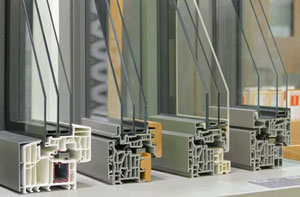
This glazing type normally incorporates multiple glass layers with an acoustic interlayer. A plastic resin-based material that can absorb sound waves is what the interlayer is typically made out of. Using these layers, the window achieves a significant reduction in noise transmission, compared to standard single or double glazing. The noise-cancelling effect can be boosted by adjusting both the distance between the glass panes and the thickness of the glass.
The benefits of acoustic glazing extend far beyond noise control; it provides a number of extra functionalities. Keeping properties in Bude warmer in winter and cooler in the summer months, it helps to improve thermal insulation. It offers better security since the multiple layers of glass are harder to break. Overall, for those seeking a quieter and calmer environment, acoustic glazing is a practical solution that enhances both living and working spaces in Bude. (Acoustic Glazing Bude)
Mass Loaded Vinyl
Mass loaded vinyl (MLV) is a soundproofing material that is used to block noise. It is composed of vinyl and heavy materials like barium sulphate and calcium carbonate, giving it a high density. The high density of MLV helps to block sound waves from passing through walls, ceilings, or floors.
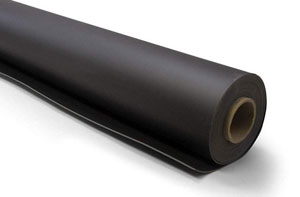
The flexibility of this material stands out as one of its main advantages. In contrast to rigid soundproofing materials, MLV can be shaped and bent around various surfaces, making it perfect for use in awkward or tight spaces. In homes, offices, and various vehicles, it is commonly installed to lessen unwanted noise.
Mass loaded vinyl works by adding extra mass to a surface, which helps to reduce the amount of noise that can pass through. As the mass increases, it becomes harder for sound to penetrate. By applying MLV to walls or floors, noise from outside or other rooms can be significantly diminished.
As a soundproofing material, mass loaded vinyl is both highly effective and versatile. Supplied in rolls and able to be cut to fit, it's easy for both soundproofing specialists and DIYers to install. Its higher price compared to other materials is offset by its enhanced performance, making it a worthwhile investment, especially in loud settings.....READ MORE (Mass Loaded Vinyl Bude)
Soundproofing Foam Bude
After undertaking some elementary keyword research, it would seem that one of the most commonly searched for terms on Google and Bing is for "soundproofing foam" and for householders in Bude, something akin to "soundproofing foam Bude". Now, this would imply that lots of people are searching for a solution to soundproof their properties in Bude, and are hoping that soundproofing foam will achieve this.
I don't wish to ruin anyone's day, but soundproofing foam isn't really a resolution for most noise pollution problems, and is most certainly not much use if you are aiming to eliminate the din from noisy neighbours in Bude.
Often sold in sheet or tile form, this "egg box" shaped foam that you sometimes see on sale isn't actually designed for blocking out noise, but was actually created for use in music studios and similar situations, to enhance the sound clarity in a room, and help reduce resonation and echoing. It is not effective in stopping noise from travelling freely around your house, or preventing sound from passing through a wall from a neighbouring property. Seeing as soundproofing foam is spongy and porous, it actually permits sound to pass right through it, and does not have the density to block it.
If however, you are building a music studio, this could be a useful product for you, and can be purchased in different thicknesses (usually 25mm and 50mm), and in various sheet and tile sizes.
Soundproof Curtains
Unwanted external noise can be mitigated by noise-reducing, soundproof or acoustic curtains, which are all popular choices for creating a quieter and more peaceful environment indoors. Designed to dampen, block and absorb sound waves, these specialised curtains are an appealing option for individuals looking to improve their working or living spaces in Bude.
Soundproof curtains are made from a combination of dense materials that can reflect and absorb sound waves. The layers of such curtains consist of heavy fabrics, such as velvet, suede, or several layers of woven fabric, along with an inner core made of foam or mass-loaded vinyl, typically. These materials effectively reduce the level of sound that enters a room by working together to minimise the transmission of noise from the outside.

Soundproof curtains are simple to install, which is a major plus point. These curtains offer a convenient and simple solution to soundproofing, unlike regular soundproofing techniques, which are complex and require professional installation. Both householders and renters in Bude can reduce noise without making irreversible changes to their living spaces by using these convenient and cost-effective curtains.
Soundproof curtains are not just functional, they can also be used to create a variety of aesthetic effects. They are available in various designs, patterns and colours, allowing householders to choose options that match the internal decor in their home. These curtains are both visually appealing and effective at soundproofing the space.
Do you have specific noise problems? If so, consider them when choosing soundproof curtains. Different curtains offer varying degrees of noise reduction, typically measured in decibels (dB). Curtains can also vary in their ability to insulate against external noise and absorb echo and reverberation within a room. This makes some soundproof curtains ideal for recording studios, home theatres or office spaces.
Although noise levels can be dramatically reduced using soundproof curtains, it is important to realise that they may not eliminate all sounds completely. Elements such as the curtain's thickness, material, and the actual frequency of the noise can influence their effectiveness. Noise reduction effectiveness can be notably increased by integrating soundproof curtains with supplementary soundproofing techniques, like sealing gaps around doors and windows, fitting acoustic panels or using weatherstripping.
To sum up, creating a serene indoor environment is no longer a remote dream.Soundproof curtains provide a readily available and functional solution. Easy to install, aesthetically diverse, and extremely effective at decreasing noise from outside, soundproof curtains are a priceless addition for noise control in workplaces, homes, and any desired space. Appreciating the attributes of soundproof curtains and selecting the ones that best suit your individual needs allows you to create a more peaceful and comfortable working or living environment. (21214 - Soundproof Curtains Bude)

Other Tradespeople in Bude: Ok, so you're currently looking for soundproofing in Bude, but you might also require home maintenance in Bude, a tiling specialist in Bude, driveway cleaning in Bude, rubbish removal in Bude, an electrician in Bude, a plasterer/renderer in Bude, a carpenter/joiner in Bude, a scaffolder in Bude, a plumber in Bude, a bricklayer in Bude, home automation services in Bude, a handyman in Bude, a double glazing installer in Bude, when undertaking any home improvement work in Bude.
Soundproofing Near Bude
Also find: Kings Hill soundproofing, Kilkhampton soundproofing, Stratton soundproofing, Lower Upton soundproofing, Flexbury soundproofing, Pyworthy soundproofing, Helebridge soundproofing, Chilsworthy soundproofing, Penzance soundproofing, Marhamchurch soundproofing, Lynstone soundproofing, Launcells soundproofing, Stibb soundproofing, Poughill soundproofing, Widemouth Bay soundproofing, Bridgerule soundproofing, Bush soundproofing, Holsworthy soundproofing and more. There are firms that specialise in soundproofing in practically all of these places. To perform high-quality soundproofing work on your property, these versatile specialists draw on their wealth of knowledge and expertise. These companies aim to reduce noise pollution effectively, creating a more peaceful and quieter living environment for occupants by providing customised solutions. To obtain soundproofing price quotes, local property owners can simply click here.
Bude Soundproofing Tasks

There are a wide range of tasks that can be accomplished by your local Bude soundproofing specialist including soundproofed rooms in Bude, soundproofing solutions, sound insulation testing, ceiling soundproofing, commercial soundproofing, domestic soundproofing services in, independent ceiling systems in Bude, residential soundproofing, soundproofing consultations, floor soundproofing services, noise reduction services, batten wall soundproofing, soundproofing surveys, vibration control, acoustic foam, soundproofing for ceilings, sound management services, acoustic panel installation, acoustic flooring in Bude, underfloor soundplank installations, soundproof curtains, home soundproofing, soundproofing supplies, acoustic fencing installation, resilient bar systems, noise control services, timber floor soundproofing, sound insulation in Bude, office soundproofing, soundproofing, and lots more. These are just a handful of the activities that are performed by people fitting soundproofing. Bude companies will be happy to tell you about their full range of services.
More: Noise Reduction Specialists, Noise Reduction Specialists, Noise Reduction Specialists, Sound Insulation, Sound Reduction, Soundproofing Firms, Sound Insulation, Noise Prevention, Soundproofing, Soundproofing Services, Soundproofing Services, Noise Control Services, Sound Reduction, Soundproofing Companies, Soundproofing Services, Soundproofing Experts, Noise Control, Sound Insulation, Acoustic Solutions, Noise Prevention, Soundproofers, Noise Reduction Services, Soundproofing Firms, Soundproofing Services, Soundproofing Experts, Noise Reduction Services, Soundproofers, Noise Control, Noise Reduction Services, Soundproofing Services, Soundproofing, Acoustic Solutions, Sound Insulation, Soundproofing Companies, Soundproofing Specialists, Soundproofing Firms, Cheap Soundproofing, Soundproofing Experts, Acoustic Solutions, Soundproofing Services, Soundproofing Companies, Noise Reduction Services, Noise Reduction, Noise Control, Soundproofing Companies, Noise Reduction Specialists, Soundproofers, Noise Control, Noise Control Services, Noise Reduction Specialists.
More: Soundproofing Firms, Soundproofing Experts, Soundproofing Services, Soundproof Rooms, Soundproofing Experts, Sound Reduction, Soundproof Rooms, Sound Insulation, Soundproofing Experts, Soundproofing Experts, Soundproofing Companies, Soundproofing Solutions, Sound Muffling, Sound Reduction, Sound Insulation, Soundproofing Services, Soundproof Rooms, Acoustic Solutions, Soundproofing Firms, Soundproofing Solutions, Noise Elimination, Noise Reduction Specialists, Sound Muffling, Soundproofing Firms, Soundproofing Specialists, Soundproofing Solutions, Noise Reduction Specialists, Soundproofing Services, Noise Control, Sound Insulation.
Cheap Soundproofing Bude - Floor Soundproofing Services Bude - Wall Soundproofing Services Bude - Soundproofer Bude - Acoustic Solutions Bude - Ceiling Soundproofing Services Bude - Soundproofing Services Bude - Noisy Neighbour Soundproofing Bude - Soundproofers Bude


